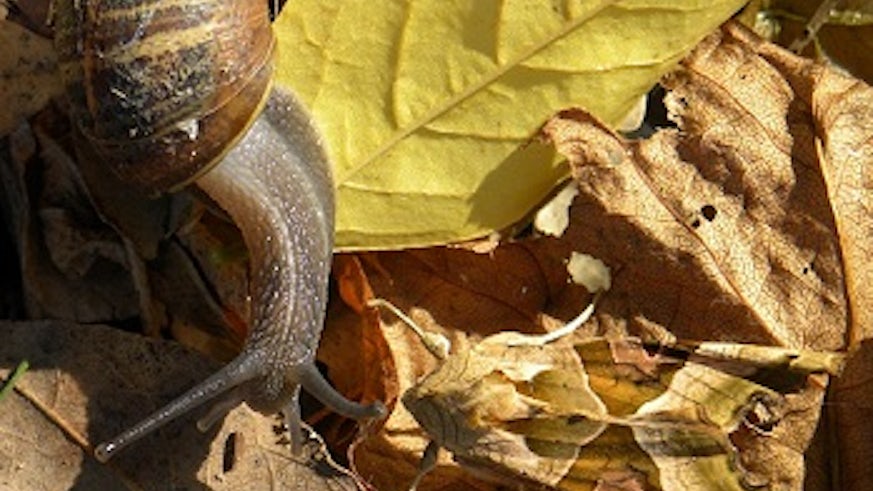The overlooked effects of global change
12 September 2013

Although the Earth is in the midst of one of the largest and most rapid ever reductions in biological diversity, we may be overlooking some of the most important aspects. That's the conclusion of a new path-finding study by University researchers and the Leibnitz Institute of Freshwater Ecology in Berlin.
While assessments of the effects of global changes such as climate warming and the loss of natural habitats concentrate mostly on falling species numbers, this work suggests that changes in the species combine and interact could be at least as important. Species affect each other often profoundly, for example as enemies competing for resources. Together, they also provide the building blocks of the world's ecosystems with all their living resources. Any changes in the way species occur together could thus have far-reaching consequences.
The study used information on insects and other invertebrates living in streams that had been modified experimentally to mimic global change or by the progressive conversion of the surrounding landscape to agriculture. In both cases, habitat modification dramatically altered the way that species co-occurred to produce a random, disorganised pattern not seen in more natural ecosystems. In addition to revealing changing pressures on where species can live, the researchers speculate that important changes could result, for example, in the way that species sometimes act together to produce living biomass or decompose and recycle waste material.
Berlin's Dr Stefano Larsen, who carried out the work while studying for a PhD at the School of Biosciences, said:
"The consistency of results between experiments and field data here was striking: when we assessed differences between streams in semi-natural and agricultural catchments or where we added small amounts of sediments to rivers to mimic one of the effects of changing land use, the results were the same: both completely altered the way that species co-occurred from highly organised to random. This implies that interactions between species - such as the way they compete for resources - were being disrupted."
Co-author Professor Steve Ormerod from the School of Biosciences added:
"We should never overlook the fact that animals, plants and microbes run the world, acting in concert to power or regulate major processes in the Earth's ecosystems. Imagine, for example, that without invertebrates and fungi, we might be knee deep in dead leaves that stopped decomposing. This study from rivers tells us that global change processes mix up species in unexpected ways, and we need to know far more about the consequences. Researchers looking into the effects of global change need to shift more of their thinking from which species are lost – to how that alters the way that ecosystems work not least for the many resources that the world's ecosystem provide for us."
The paper describing this work is published online today in the journal,Global Change Biology*.
*"Anthropogenic modification disrupts species co-occurrence in stream invertebrates" by Stefano Larsen and S. J. Ormerod, Global Change Biology doi: 10.1111/gcb.12355
http://onlinelibrary.wiley.com/doi/10.1111/gcb.12355/abstract